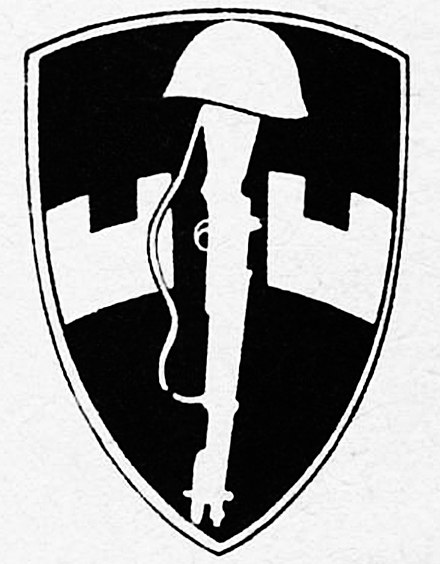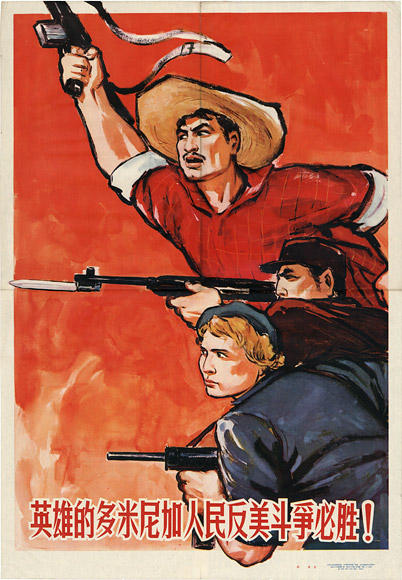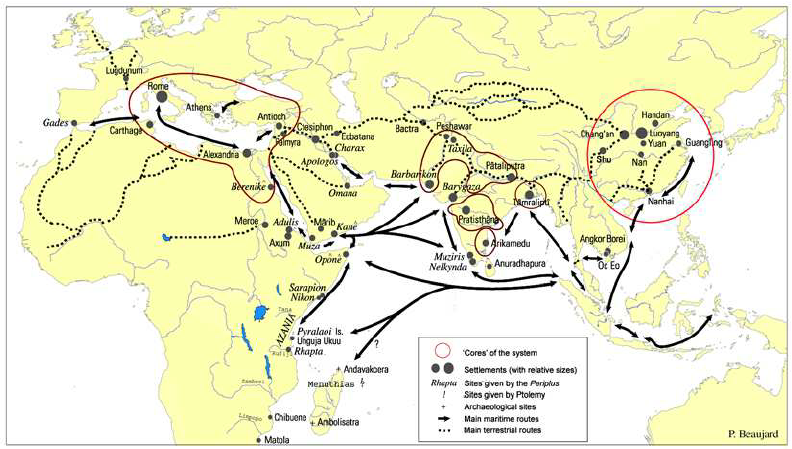 I’ve been taking the demise of socialism pretty hard. I detailed the rise and fall of socialism last month, and particularly the collapse of socialism’s project for human liberation. I’ve been left unhappy, bereft and forlorn. Yet I’m not without political options even today, ones that are not nearly as sexy as the idea of socialism. So let’s talk about local grassroots politics.
I’ve been taking the demise of socialism pretty hard. I detailed the rise and fall of socialism last month, and particularly the collapse of socialism’s project for human liberation. I’ve been left unhappy, bereft and forlorn. Yet I’m not without political options even today, ones that are not nearly as sexy as the idea of socialism. So let’s talk about local grassroots politics.
I’ve lived in San Francisco for some twenty years. The City (and congruent county) is considered a bastion of liberalism, with registered Democratic voters substantially outnumbering Republicans (approx. 45% to 30%). Even the number of registered “decline to state” Independent voters is oversized at 20%. When it comes to actual election figures 85.26% voted Democratic, 12.72% voted Republican, with 2.02% voting third party in 2020.
Which means that San Francisco’s overwhelming democratic majority further subdivides into moderate, liberal and progressive factions. Whether there are conservative Democrats in San Francisco is debatable. That factions of Democrats often battle each more fiercely than do progressive Democrats versus MAGA Republicans on the national stage has been evident in the last few years. Reminds me of the old saw that when the Left forms a firing squad it forms a circle with guns turned inward. San Francisco District Attorney George Gascón announced in October 2018 he wouldn’t seek a third term. A leading progressive prosecutor, Gascón suddenly resigned in October 2019 and went on to be elected Los Angeles District Attorney. This move forced Mayor London Breed to appoint an interim DA (Suzy Loftus) and a general election followed that Chesa Boudin entered on a platform opposing mass incarceration, police misconduct and immigrant detention. Boudin won even though the San Francisco Police Officers Association (SFPOA) and other law enforcement groups spent $650,000 on TV advertising and hundreds of thousands of mailers to try to defeat him, essentially intending to buy the DA’s office.
San Francisco District Attorney George Gascón announced in October 2018 he wouldn’t seek a third term. A leading progressive prosecutor, Gascón suddenly resigned in October 2019 and went on to be elected Los Angeles District Attorney. This move forced Mayor London Breed to appoint an interim DA (Suzy Loftus) and a general election followed that Chesa Boudin entered on a platform opposing mass incarceration, police misconduct and immigrant detention. Boudin won even though the San Francisco Police Officers Association (SFPOA) and other law enforcement groups spent $650,000 on TV advertising and hundreds of thousands of mailers to try to defeat him, essentially intending to buy the DA’s office.
The SFPOA called Boudin and his election “dangerous for our children,” “putting our families at risk,” “would make neighborhood safety worse,” whose “reckless policies will cost lives.” By December Trump’s Attorney General William Barr openly criticized the newly elected Boudin and fellow progressive DAs, accusing them of subverting the police, letting criminals off without punishment, and jeopardizing public safety. It was the waning days of the Trump administration after it had released every manner of rightwing reaction—from MAGA to neo-Nazism. Lindsay Danae Grathwohl went ballistic when Boudin declared for the DA’s office. Lindsay was the daughter of Larry Grathwohl, the FBI informer who infiltrated the Weather Underground and wrote a book about his experiences. She took particular offense that Chesa Boudin was the son of Weather Underground (WU) / May 19th Communist Organization members Kathy Boudin and David Gilbert. Chesa was adopted by fellow WU members Bill Ayers and Bernardine Dohrn when his parents went to prison for the infamous 1981 Brink’s robbery and related murders. That’s in addition to Chesa’s storied left-wing family lineage and his own Marxist sympathies. A far-right supporter of Trump chummy with the Proud Boys and white supremacist gangs like the American Guard and Golden State Skinheads, Lindsay despised Chesa as a “Cultural Marxist” (Cultural Marxism being a far-right antisemitic conspiracy theory.) She continues her crusade against Boudin to this day. Traditionally, Americans believe crime is caused by human nature—“the evil that men do”—and requires punishment—from punitive fines to penal incarceration and capital punishment. In other words a fairly biblical “eye for an eye, tooth for a tooth” approach that amounts to old-fashioned revenge in most cases. The United State has the largest number of prisoners worldwide (1.8 million) and is sixth in the world in the number of prisoners per 100,000 of the population (531). A more nuanced approach contends that crime is caused by social, economic, psychological, cultural, and environmental factors that argues for a multifaceted solution at the very least. I agree with the progressive prosecutors movement (Gascón, Boudin, Philadelphia DA Larry Krasner, Chicago State’s Attorney Kim Foxx, Brooklyn DA Eric Gonzalez, Baltimore State’s Attorney Marilyn Mosby, Boston DA Rachael Rollins, Florida State Attorneys Andrew Warren and Monique Worrell, et al.) that the underlying cause of most crime is poverty and racism so I wholeheartedly supported Chesa Boudin’s fraught tenure as San Francisco District Attorney. My wife and I got involved with Boudin’s campaign for District Attorney from the start, going to fundraisers and campaign events when campaigning and participating in town hall meetings like the Oct 10, 2021, information rally in Noe Valley Town Square.
Traditionally, Americans believe crime is caused by human nature—“the evil that men do”—and requires punishment—from punitive fines to penal incarceration and capital punishment. In other words a fairly biblical “eye for an eye, tooth for a tooth” approach that amounts to old-fashioned revenge in most cases. The United State has the largest number of prisoners worldwide (1.8 million) and is sixth in the world in the number of prisoners per 100,000 of the population (531). A more nuanced approach contends that crime is caused by social, economic, psychological, cultural, and environmental factors that argues for a multifaceted solution at the very least. I agree with the progressive prosecutors movement (Gascón, Boudin, Philadelphia DA Larry Krasner, Chicago State’s Attorney Kim Foxx, Brooklyn DA Eric Gonzalez, Baltimore State’s Attorney Marilyn Mosby, Boston DA Rachael Rollins, Florida State Attorneys Andrew Warren and Monique Worrell, et al.) that the underlying cause of most crime is poverty and racism so I wholeheartedly supported Chesa Boudin’s fraught tenure as San Francisco District Attorney. My wife and I got involved with Boudin’s campaign for District Attorney from the start, going to fundraisers and campaign events when campaigning and participating in town hall meetings like the Oct 10, 2021, information rally in Noe Valley Town Square.
Boudin was first and foremost a criminal justice reform advocate, pushing both decriminalization and decarceration. By 2020 decriminalization was a well-established principle in much of California with regard to drugs (marijuana legalization), sex (homosexuality, prostitution) and other non-violent “crimes.” He created a wrongful conviction unit, the Innocence Commission that freed Joaquin Ciria who had been imprisoned for decades. He stopped prosecuting children as adults. He pioneered diversion programs for nonviolent and misdemeanor crimes, mental health and drugs to reduce prison overpopulation. At the beginning of the COVID-19 pandemic he reduced San Francisco’s jail population by 25% (and then 40%). Older inmates, those with medical conditions, inmates near the end of their sentences for misdemeanor crimes were prioritized for early release, home detention or probation. Boudin further reduced prison populations by promoting alternatives to incarceration like restorative justice or Veteran’s Justice Court. Central to both decriminalization and decarceration was his elimination of cash bail. Bail is a way to keep poor people in jail, whether or not they’re guilty of any crime. Had Boudin stopped with criminal justice reform he would have been called “soft on crime” but he might have survived in office. But Chesa then took on the real criminals in society. He launched the Economic Crimes Against Workers Unit which took on food delivery services like DoorDash, claiming the company illegally classified delivery workers as “independent contractors.” The classification denied workers proper wages and benefits and the right to unionize, and led to similar suits against gig companies like Uber and Lyft. He prevented his office from cooperating with ICE over raids and arrests against undocumented immigrants. Then he took on the San Francisco Police Department (SFPD) over accountability issues.
Had Boudin stopped with criminal justice reform he would have been called “soft on crime” but he might have survived in office. But Chesa then took on the real criminals in society. He launched the Economic Crimes Against Workers Unit which took on food delivery services like DoorDash, claiming the company illegally classified delivery workers as “independent contractors.” The classification denied workers proper wages and benefits and the right to unionize, and led to similar suits against gig companies like Uber and Lyft. He prevented his office from cooperating with ICE over raids and arrests against undocumented immigrants. Then he took on the San Francisco Police Department (SFPD) over accountability issues.
With George Gascón and Diana Becton he approached the State Bar of California to unsuccessfully prohibit elected prosecutors from taking contributions from police unions. With Supervisor Shamann Walton he successfully prohibited hiring police with prior misconduct charges. He implemented several new policies. He required prosecutors to review all evidence before charging any cases involving allegations of resisting or obstructing cops or committing an assault on cops. Cases would then not be charged or prosecuted based on the sole evidence of officers with a history of misconduct (such as excessive force or discrimination) without prior approval of the DA. And victims of police violence would be able to file for medical compensation whether or not the cop was prosecuted for assault or use of excessive force despite loopholes and gaps in the state’s compensation laws. Boudin filed criminal cases against nine SFPD officers for misconduct while on duty, including Officer Terrance Stangel. This case was known as the “first-ever use-of-force case against an on-duty officer for excessive force.” The case was ultimately unsuccessful, with Boudin’s conservative DA successor Brooke Jenkins dismissing the rest. Chesa’s aborted term as San Francisco DA coincided not only with the Covid-19 pandemic but also with the George Floyd / Black Lives Matter protests, and the accompanying demands to “Defund the Police.” He faced intensifying backlash from the SFPD and SFPOA, tech industry leaders, Republicans and residents fearful of rising crime rates, becoming the target of relentless criticisms. Some criticisms involved how he handled particular criminal cases (the killings of Vicha Ratanapakdee and Deshaune Lumpkin, the assault on Rong Xin Liao). Other broader criticisms accused him of mismanaging the office of District Attorney and releasing repeat offenders. The Alliance of Asian American Justice filed a federal civil rights lawsuit against Boudin’s office for violating victim’s rights. No fan of criminal justice reform, Mayor London Breed was a waffling moderate Democrat turning conservative as she grew frustrated with the City’s homeless problems, unveiling her emergency declaration in the Tenderloin, her new tough-on-crime turn, and her support for recalling three SF Board of Education members. She and Boudin began taking swipes at each other by the end of 2021, with Breed criticizing “white San Francisco progressives” for not supporting her Tenderloin emergency declaration, and eventually supporting Boudin’s recall.
Chesa’s aborted term as San Francisco DA coincided not only with the Covid-19 pandemic but also with the George Floyd / Black Lives Matter protests, and the accompanying demands to “Defund the Police.” He faced intensifying backlash from the SFPD and SFPOA, tech industry leaders, Republicans and residents fearful of rising crime rates, becoming the target of relentless criticisms. Some criticisms involved how he handled particular criminal cases (the killings of Vicha Ratanapakdee and Deshaune Lumpkin, the assault on Rong Xin Liao). Other broader criticisms accused him of mismanaging the office of District Attorney and releasing repeat offenders. The Alliance of Asian American Justice filed a federal civil rights lawsuit against Boudin’s office for violating victim’s rights. No fan of criminal justice reform, Mayor London Breed was a waffling moderate Democrat turning conservative as she grew frustrated with the City’s homeless problems, unveiling her emergency declaration in the Tenderloin, her new tough-on-crime turn, and her support for recalling three SF Board of Education members. She and Boudin began taking swipes at each other by the end of 2021, with Breed criticizing “white San Francisco progressives” for not supporting her Tenderloin emergency declaration, and eventually supporting Boudin’s recall.
But Boudin was subject to a particularly brutal smear campaign by the SFPOA and SFPD that used on-duty police officers to falsely rig crime statistics, particularly claiming a rise in burglaries, car theft and murders during his tenure. The Atlantic reported a decline in rates of general violent crime, to include rapes and assaults, and the Intercept reported a decline in overall crime numbers. Samantha Michaels in Mother Jones wrote: “crime rates are not spiraling out of control, and there’s no evidence that Boudin or other DAs are responsible for the upticks that have occurred. In fact, academics who studied progressive prosecutors around the country found that their policies did not cause violence to rise.” Public opinion ultimately turned against Boudin and a recall campaign targeted him. The Safer SF Without Boudin pro-recall campaign was led by SF Democratic Party Central Committee chair moderate Mary Jung. It was financed by ultra-wealthy funders (tech industry investors Ron Conway, Garry Tan and David Sacks) and billionaire GOP mega-donor William Oberndorf. The recall “raised $7.2m and ran a campaign that blamed Boudin’s policies for the complex problems of crime, violence, homelessness, drug addiction and other challenges in the city” according to the The Guardian’s Sam Levin who wrote “[t]he recall message won out in a low-turnout election on Tuesday, with initial results showing 60% of voters supporting his removal, despite a lack of evidence that Boudin’s reforms were causing an uptick in crime rates.” (6-9-2022) Lindsay Grathwohl bragged on Facebook that she routinely attacked Boudin’s San Francisco counter-recall rallies with fellow fascist Amber Cummings without fear of being arrested by the SFPD. Meanwhile SFPOA president Tony Montoya issued statements mercilessly denouncing Boudin’s shortcomings, also on Facebook, eliciting comments from Catherine Hart that “[he] is the son of domestic terrorists, Read Lindsay Grathwohl’s father’s book…” before going on to claim that “George Soros is funding DA races all over the country.” As a footnote, Mission Local subsequently revealed that Brooke Jenkins illegally emailed sensitive documents to a colleague before leaving her position in Boudin’s DA office to join the recall campaign.
Public opinion ultimately turned against Boudin and a recall campaign targeted him. The Safer SF Without Boudin pro-recall campaign was led by SF Democratic Party Central Committee chair moderate Mary Jung. It was financed by ultra-wealthy funders (tech industry investors Ron Conway, Garry Tan and David Sacks) and billionaire GOP mega-donor William Oberndorf. The recall “raised $7.2m and ran a campaign that blamed Boudin’s policies for the complex problems of crime, violence, homelessness, drug addiction and other challenges in the city” according to the The Guardian’s Sam Levin who wrote “[t]he recall message won out in a low-turnout election on Tuesday, with initial results showing 60% of voters supporting his removal, despite a lack of evidence that Boudin’s reforms were causing an uptick in crime rates.” (6-9-2022) Lindsay Grathwohl bragged on Facebook that she routinely attacked Boudin’s San Francisco counter-recall rallies with fellow fascist Amber Cummings without fear of being arrested by the SFPD. Meanwhile SFPOA president Tony Montoya issued statements mercilessly denouncing Boudin’s shortcomings, also on Facebook, eliciting comments from Catherine Hart that “[he] is the son of domestic terrorists, Read Lindsay Grathwohl’s father’s book…” before going on to claim that “George Soros is funding DA races all over the country.” As a footnote, Mission Local subsequently revealed that Brooke Jenkins illegally emailed sensitive documents to a colleague before leaving her position in Boudin’s DA office to join the recall campaign. “For now, at least, San Francisco can no longer be called a progressive city.” This according to the 3-6-2024 San Francisco Chronicle. “Not after voters approved ballot measures Tuesday to loosen restrictions on the police [Prop. E] and screen welfare recipients for drugs [Prop. F], while a measure to boost developers was leading and likely to pass.” Both propositions were sponsored by moderate-Democrat-turned-conservative London Breed who has low approval ratings and is facing strong challengers to her reelection bid this November.
“For now, at least, San Francisco can no longer be called a progressive city.” This according to the 3-6-2024 San Francisco Chronicle. “Not after voters approved ballot measures Tuesday to loosen restrictions on the police [Prop. E] and screen welfare recipients for drugs [Prop. F], while a measure to boost developers was leading and likely to pass.” Both propositions were sponsored by moderate-Democrat-turned-conservative London Breed who has low approval ratings and is facing strong challengers to her reelection bid this November.
My wife and I raised money, attended rallies, wrote letters and made phone calls to stave off Boudin’s eventual defeat. We’re not happy that San Francisco has turned from a progressive/liberal Democratic city to a moderate/conservative one. We’re now backing Supervisor Aaron Peskin to challenge Breed’s disappointing incumbency as mayor, one of the only progressives left standing.














































